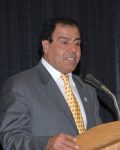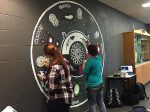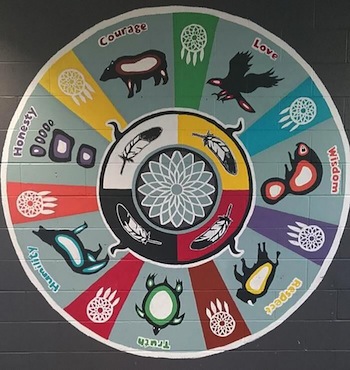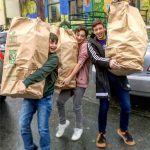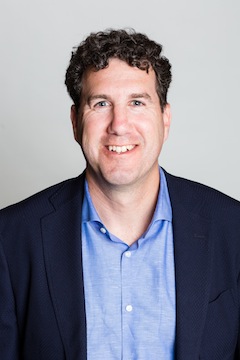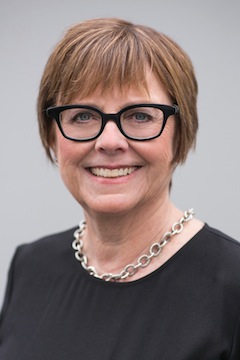Left to right: Ariel Lewinski, Judy Boxer and John Bromley. (photo from Chimp)
When it comes to charitable giving, there’s a widespread feeling of donor fatigue, says Judy Boxer, community engagement manager with Chimp Technology in Vancouver. Chimp is an online giving platform that helps people give to and fundraise for charities that match their values and interest. Focused on charitable impact, the company is determined to counter donor fatigue by making philanthropy a positive, rewarding experience. And it’s set its sights on the Jewish community of Vancouver with a Tzedakah Project targeting Jewish giving.
A Vancouver donor who prefers to remain anonymous gave Chimp $270,000 to jumpstart the Tzedakah Project in mid-November. Boxer and her colleague Ariel Lewinski are tasked with creating the community, helping select a board to run it and then handing it over to the board.
“Ultimately, this initiative is something the Jewish community will take on and run on their own terms,” she said. To add incentive to membership, the Tzedakah Project is starting out by offering an $18 charitable gift to new members “so they can experience the gift of giving to a Jewish charity of their choice,” Boxer explained.
The core of Chimp is the Chimp account, which gives a donor the same benefits as having their own private foundation, but free of charge, said Lewinski, Chimp’s vice-president of partnerships and growth. “It’s like an online bank account for charitable giving. You put any amount of money into the Chimp account and you get your tax receipt at the moment you want it. You can allocate the charitable giving at a later date.”
Chimp membership encourages donors to rethink how they give charitably. Boxer and her team have found that people’s donations are more reactive when they receive calls requesting donations. They don’t necessarily plan their giving to make the biggest impact.
“We’ve found people connect really well to causes,” she reflected. “At Chimp, we’ll help them figure out what causes are important to them and then offer a matching charitable organization so they can allocate their charitable giving. With a Chimp account, you have an opportunity to engage in a conversation about what you care about, what you want to achieve and where you want to make an impact, as opposed to reacting towards people asking for money.”
Chimp Technology is the brainchild of John Bromley, a 38-year-old Vancouverite who started out in corporate finance and then co-founded a law consulting company focused on charity. His clients were high-net-worth donors who needed help structuring their giving and, in the process of working with them, Bromley felt he could help ordinary people structure their charitable giving, too.
“I saw that the only people getting their giving problems resolved were people who had so much money they could create their own private foundation,” he said. “I started Chimp Technology in 2012 to focus on a donor-centred giving experience for everyone else.”
Bromley observed that the main place people learned to give was in religiously oriented families or theologically tied communities. “As there’s been more secularization in North America, we’ve seen a reduction in the number of people that learn how to give,” he noted. “Chimp isn’t religiously motivated, but we understand the theological backgrounds and the very important role those theologies and communities play in the giving economy in Canada.”
While Chimp is theologically neutral, it aims to represent donors and effectively facilitate their philanthropy. “That’s important, because, when you take away all the noise that exists around how to give to charity, you create more time for people to think about how they’ll spend their charitable dollars,” Bromley said. “Chimp is about enabling or empowering donors large and small to give on their own terms to the things that matter to them.”
Boxer said the Tzedakah Project is also trying to empower the younger generation and has partnered with Vancouver Hebrew Academy, Vancouver Talmud Torah, King David High School and Torah High in Vancouver. “We want to start a philanthropic conversation with kids of a certain age about the kind of impact they want to have, to have them think about charity in a new way, and possibly start conversations between them and their families,” she said.
“We’re trying to enable and empower people from different communities by giving them the tools they need to create a giving program around a cause or community,” Bromley added. “We’re not the founders of the idea for the Tzedakah Project – that’s coming out of the Jewish community. But it’s a real pleasure to be doing this with the Jewish community. I’ve learned a heck of a lot about the wealth of engagement with tzedakah and how serious giving values are in the community, and it’s quite inspiring.”
To join, visit go.chimp.net/tzedakahproject.
Lauren Kramer, an award-winning writer and editor, lives in Richmond. To read her work online, visit laurenkramer.net. This article was originally published in the CJN.


